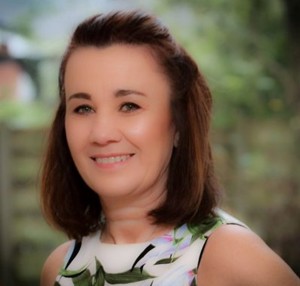Women’s Services Committee Chair’s Briefing - January 2025

Welcome to the first Women’s Services Committee Chair’s briefing of 2025.
As we begin the new year, I’d like to reflect on the progress we made during 2024 with the programme to improve hospital gynaecology and maternity services in Liverpool, and look ahead to what’s planned during the next 12 months.
We started this year by putting in place strengthened arrangements to deliver the requirements of the programme, including establishing a new programme board, led by local NHS trusts. Having produced a plan for managing the first phase of this work, the programme board then quickly moved ahead with the development of a case for change, setting out the challenges facing hospital gynaecology and maternity care. Many of you will be aware that issues around these services have been discussed in the past, but while previous work provides an important foundation for where we are now, it was really important that the new case for change reflected the latest data and intelligence around what’s happening in these services. The content was provided by those working across women’s services locally, and a draft of the document was discussed with key health and care organisations during the summer, before it was approved by the Board of NHS Cheshire and Merseyside in October 2024.
Soon after the approval of the case for change, we launched a six-week public engagement, to give people an opportunity both to reflect on the issues the document covers, and share their own experiences of care. We developed a number of different materials to support the engagement, and it was great to have input from our Lived Experience Panel members to make sure that the information we published was clear and accessible – all the materials are still available on our programme website, together with a number of video case studies from local NHS staff. You might remember from previous briefings that the Lived Experience Panel was set up during the summer, and consists of people who have used gynaecology and/or maternity services in the past, either as patients or carers. Importantly, it includes people from a diverse range of backgrounds, who bring experience from a number of different women’s health services locally.
We had hundreds of responses to the public engagement, and we’re delighted that so many people took the opportunity to get involved and share their views, including those who completed a questionnaire, took part in discussions held by one of the community and voluntary sector organisations we worked with, or joined us for an engagement event. An independent company is now in the process of analysing all the feedback we received, and setting out the findings into a report. We’re intending to publish this at the end of March.
It’s really important to stress that the public engagement was not a public consultation on proposed changes to services, but a chance for people to comment on the issues being presented. The findings from the engagement will provide us with an important basis for the next phase of work, which will include beginning to develop some potential options for how services could look in the future. It’s a process which will involve a wide range of people, including staff who work in gynaecology and maternity services, and the Lived Experience Panel. In preparation, clinicians working across Liverpool’s health and care organisations recently came together to discuss next steps for the programme, and we’ll be holding more sessions like this during the coming year. However, even as work to think about the future gets underway, we’re still only at the point of exploring potential options – no proposals have been put forward, and no decisions have yet been made. We’ll of course be continuing to involve people as we move forward, and looking at the most effective and appropriate ways to do this, whether than means further communication, engagement or formal public consultation, but this will be dependent on how the programme progresses.
I hope this has been a useful briefing. We’ll time the next one to coincide with the publication of the public engagement feedback report, which will also be an opportunity to provide an update on the wider programme, including the clinical engagement event mentioned above. If you have any questions or comments in the meantime, you can email engagement@cheshireandmerseyside.nhs.uk If you haven’t done so already, I’d also encourage you to sign up for our Virtual Reference Group, so that we can let you know as and when we publish any new information.
Best wishes
Professor Hilary Garrett CBE, Chair, Women’s Services Committee